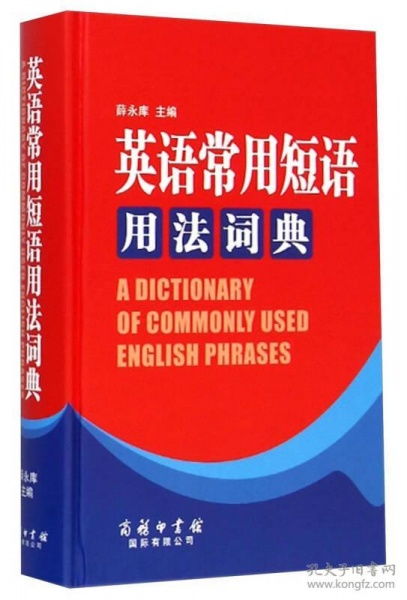commemorate用法(commemorate用法短语)
- 漫画
- 2023-03-10 06:03:01
- -

commemorate和celebrate的区别
celebrate和congratulate均有“庆祝、祝贺”的意思,两者都是动词.区别在于:
1、celebrate:通常指庆祝有意义的日子或事件,常常伴有盛大的庆典仪式,多指庆祝节日.
例如:How do people celebrate new year in your country?
你们国家的人怎样庆贺新年?
The Society is celebrating its tenth anniversary this year.
这个协会今年将举办成立10周年庆典.
2、congratulate:指对他人祝贺为目的,希望他人幸福或走运或表达对某人的表扬.有以下三种用法:
(1)congratulate sb.for sth.为某事向某人表扬、庆贺
I really must congratulate the organizers for a well run and enjoyable event.
活动安排得有条不紊,充满乐趣,我必须要称赞一下组织者.
(2)congratulate sb.on...就…向某人表示祝贺
Congratulate him on following up your leads.
如果他听从你的建议,就向他表示祝贺.
(3)congratulate that+从句
We congratulate that he is accepted to join the Party.
我们祝贺他被接受入党.
因此celebrate常用于庆祝某事,而congratulate则多用于祝贺某人.根据题意,his daughter's being admitted to Qing Hua University 是一件值得庆贺的事情,因此用celebrate.若用congratulate,则可写成:congratulate on him that his daughter has admitted to Qing Hua Universit
[img]纪念的英文是什么
纪念的英文是memory。
英 ['meməri],美 ['meməri]
n. 记忆力,回忆,记忆
例句:She is always moaning about her bad memory.
翻译:她总是抱怨自己的记性不好。
短语:
1、assist sb's memory 帮助某人回忆
2、bring back -ries 回忆起
扩展资料:
用法:
n. (名词)
1、memory的基本意思是“记忆”,可指记忆的能力,也可指记住的“人或事物”。
2、memory作“记忆能力,记性”解时是不可数名词,可指把已不复存在的事物在脑海中复现的能力,也指记忆所学到的事物(如单词)的能力,还指辨认从前知晓的事物的能力。
3、memory作“记忆中的人或事物”解时是可数名词,可指单一事物,也可指整体事物,强调记在心里、珍藏于心中。

英语的前后缀,要具体详尽附有用法,词根就免了,先谢谢诸位了哈!
英语前缀 ⅰ.前缀re-
re-是最常用的前缀之一。它可以加在名词或动词前面,构成新的名词或动词。re-表示以下三方面的意义:
1.表示"回"或"向后"的意思。例如:return(回来,返回)recall(回忆,召回)retract(缩回,取回)
2.表示"再"、"重新"、"重复"的意思。例如:review(复习)reunion(团圆,重聚)restart(重新开始)reconstruction(重建)
3.表示"相反"、"反对"的意思。例如:rebel(反叛,谋反)reverse(反转,颠倒)resist(反抗,抵抗)
ⅱ.前缀de-与dis-
前缀de-来自拉丁语,意为"away from",所以这个前缀的意义之一就是"离开"、"出"。它构成的词有一定规律性,常表"离开"这一深层概念,而且常与介词from等搭配,例如:dethrone(废黜)
deport(驱逐出境)deduce(推断) derail(脱轨)
delete his name from the list of members.把他的名字从成员名单上除去。
the train will depart from platform 2.这列火车将从2号站台发车。
另外,前缀de-还表示"除去"、"取消"以及"否定"、"非"、"相反"的意思。例如:decamp(撤营)decode(解码)deforest(砍伐森林)decolonize(非殖民化) devaluation(贬值)
he has been degraded from public office.他已经被解除公职。
he descended from his taxi.他下了出租车。
前缀dis-与前缀de-同源,也来自拉丁语,原义为apart"分开"。dis-具有"不"、"无"的意思,所以加在某些动词或名词前构成反义词。例如:dishonest(不诚实的)disappear(不见,消失)
disorder(无秩序,混乱)
dis-还表示"取消"、"除去"以及"分开"、"离"、"散"的意思。由这些意义构成的词常与from等搭配。例如:
he discounted 15%from the price of a car.他把汽车价格打八五折。
don’tdistracthis mind from his work.不要分散他工作的注意力。
另外,dis-也可表示"相反动作"或加强意义,由它构成的词也常与from等搭配,下面例子都表示"相反动作"。
disappear from the view 消失不见
he was discharged from hospital.他出院了。
ⅲ.前缀in-及im-,il-,ir-
它们像同胞四兄弟,都是表示否定的前缀。表示"不、无、非"等否定意义。
1.以字母b,m,p开头的单词,其否定前缀为im-。例如:imbalance(不平衡的)immoral(不道德的)impossible(不可能的)
2.以字母l开头的单词用il-;以字母r开头的单词用ir-。例如:illegal(不合法的)illogical(不合逻辑的)irregular(不规则的)irrelative(无关系的)
3.以其他字母开头的为in-。例如: inhuman(不人道的)injustice(不分开的)inseparable(不可分的)incorrect(不正确的)
ⅳ.前缀ex-
ex-有两个意义:
1.表示"出"、"外"、"由……中弄出"。例如:export(出口,输出)extract(抽出,拔出)expel(逐出,赶出)
2.表示"前任的,以前的"。例如: ex-president(前任总统)ex-soldier(退伍军人)ex-husband
(前夫)
ⅴ.前缀anti-
anti-表示"反对"、"相反"或"防止"。例如:antiwar(反战的)anti-colonial(反殖民主义的)antifat(防止肥胖的) antimissile(反导弹)
ⅵ.前缀macro-与micro-
macro-与micro-是一对意义相反的前缀,macro-表示"宏、大";micro-表示"微"。例如:macroworld(宏观世界) macroeconomics(宏观经济学) macroscale(大规模)microscope(显微镜)microworld(微观世界)microele- ment(微量元素)
ⅶ.前缀trans-
trans-有两个意义:
1.表示"转变"、"变换"。例如: transport(运输---从一地转到另一地) transplant(移植)translation(翻译---从一种语言转为另一种语言)trans- form(使变形,改造)
2.表示"超过"、"横跨"、"超"。例如:transcentury(跨世纪)transnational(跨国的)transcontinental(横跨大陆的) transatlantic(横跨大西洋的) guangao
tele代表从远方来的.比如telephone,telegraph.
a-/an- == no; without; lack, amateur 不熟练的,业余的, anonymous 匿名的, asocial 不好社交的, anechoic 消声的, anharmonic 不和谐的, anarchism 无政府主义, acentric 无中心的, amoral 非道德性的, asexual 无性别的
a- == in; on; at; by; with;to, asleep 在熟睡中, ahead 向前,在前头, abreast 肩并肩地, aside 在一边, abed 在床上, abloom 开花
a-/an- == 加强意义, aloud 高声地, aright 正确地, awake 唤醒, aweary 疲倦的, annotate 注释, announce 宣布,通告 ab- == from; away from, abnormal 不正常的, abroad 国外的, abuse 滥用, absorb 吸去, abaxial 离开轴心的, abend 异常终止
ac- == at; to,或表示加强意义, accustom 使习惯, account 计算,算帐, accredit 信任, accompany 陪伴, acclaim 欢呼,喝彩, accomplish 完成
ad- == to; toward; forward, advice 建议, advocate 倡导, adjoin 临近 adjust 调整, admixture 混杂, adventure 冒险
af- == at; to,或表示加强意义, affright 震惊,恐惧, affix 附加,贴上, affirm 肯定,确实
ag- == at; to,或表示加强意义, aggrandize 增大, aggravate 加重, aggrieve 使悲痛 amphi- == 两、双, amphicar 水陆两用车, amphibian 水陆两栖的, amphitheatre 两边都可观看的剧场,圆形剧场
ante- == before, antecedent 先前的,先行的, antetype 先型,原型, anteport 前港,外港, anteroom 前室,接待室, antedate 比实际早的日期, antestomach 前胃
anti- == against, antipathy 反感, antifreeze 防冻, antiwar 反战的, anti-imperlialist 反帝的, antiageing 防衰老的, antitank 反坦克
ap- == 加强或引伸意义, appoint 指定,任命, appraise 评价, appease 平息,绥靖 ap-/apo- == 离开, apogee 远地点(远离地球之处), apostasy 脱党,叛教, aphelion (天文)远日点
ar- == at; to,或表示加强及引伸意义, arrange 安排,布置, arrect 直立的, arrear 在后,拖延 arch- == 1)big; chief. 2)ancient, archbishop 大主教, archaeology 考古学, archaic 古体的,古风的
as == to;forward, assign 派出, assent 同意, assort 分类, assimilate 同化,吸收, assure 使确信,担保, associate 联合,结合
at- == at; to,或表示加强及引伸意义, attrap 使入陷阱, attest 证明, attract 吸引
auto- == self; personally, automation 自动化, autograph 亲笔, autoalarm 自动报警器, autocriticism 自我批评, autorotation 自动旋转, autobiography 自传
be- == make or cause to be, befog 使迷糊, befit 适宜, belittle 贬低, befriend 以朋友相待, becalm 使镇静, befool 欺骗,愚弄
be- == 加以...,饰以...,用...(做某事), bepowder 在...上撒粉, bejewel 饰以珠宝, becloud 遮蔽 be- == 在, beside 在...旁, below 在...下面, before 在...之前
be- == 加强及引伸意义, befall 降临,发生, bespatter 溅污, belaud 大加赞扬 bene- == well; good, benign 和善的, benevolent 乐善好施的, benefit 好处, benediction 祝福, benefaction 恩惠,善行, beneficent
bi- == two, bicycle 自行车, bilateral 双方, bimonthly 双月刊, biweekly 双周刊, bicolor 两色的, bilingual 两种语言的
by- == 旁、侧、非正式、副, byroad 小路,僻径, bywork 业余工作, byname 别名,绰号
circu- == around, circulate 流通, circumnavigate 环球航行, circumspect 考虑周到的, circumplanetary 环绕行星的, circumpolar 在两极周围的, circumaviate 环球飞行
co- == together, coaction 共同行动, cooperate 合作, coeducation 男女同校
col- == together, collaboration 协作,勾结, collingual 用同一种语言的, collocate 并置,并列
com- == together, compatriot 同胞,同国人, combine 联合,结合, commiserate 同情 com- == 加强或引伸意义, commove 使动乱, compress 压缩, commemorate 纪念
con- == together, concolorous 同色的, connatural 同性质的, contemporary 同时代的 con- == 加强或引伸意义, conclude 结束,终结, confirm 使坚定, consolidate 巩固,加强 contra- == against, contradiction 矛盾, controversial 可能引起争议的, contraclockwise 逆时针方向的, contra-missile 反导弹导弹, contraposition 对照,针对, contraband 走私,违法交易
cor- == together, correlation 相互关系, corradiate 使(光线)共聚于一点, correspond 符合,相应
cor- == 加强或引伸意义, correct 改正,纠正, corrupt 腐败,败坏, corrugate 使起皱纹 counter- == opposite, counterrevolutionary 反动的, countermeasure 对策,应策, countercurrent 逆流, countermarch 反方向行进, counterattack 反攻,反击, countercharge 反控,反告
de- == down from, deplane 下飞机, dethrone 使离王位, derail 使(火车)脱轨
de- == 向下、降低、减少, depress 压低,压下, depopulation 人口减少, devalue 贬值
de- == 使成...,作成...,或仅作加强意义, delimit 划定界限, denude 使裸露, depicture 描绘,描述
de- == not, denationalize 非国有化, demilitarize 使非军事化, demobilize 复员
de- == 除去、取消、毁, desalt 除去盐份, deforest 砍伐森林, decontrol 取消管制 dec(a)- == ten, decade 十年, decimal 十进位制的, decathlon 十项全能
deci- == 十分之一, decigram 十分之一克, decimeter 十分之一米, decilitre 十分之一升 demi- == 半, demigod 半神半人, demi-fixed 半固定的, demiwolf 半似狼之犬
di- == 二、双, diatomic 二原子的, disyllable 双音节的, dichromatic 两色的
dia- == through;between;across , diameter 直径, dialogue 对话, diagnosis 诊断
dif- == 1)apart. 2)not;opposite , diffluence 分流, diffident 不自dismember 解体信的, diffuse 散开,散布 dis- == 不、无、相反, dislike 不喜欢, disagree 不同意, discontinue 中断, disorder 混乱, disbelieve 不信, disproof 反证, dishonest 不诚实的, dispraise 贬损,非难, disappear 消失, disremember 忘记, discomfort 不舒服, disability 无能,无力
dis- == 加在含有分开、否定等意义的单词前,作加强意义, dispart 分离,裂开, dissever 分裂,切断, dissemination 散布,传播 dis- == 分开、离、散, dissect 切开, dissolve 分离,溶解, distract 分心,转移, dispense 分配, dispel 驱散, dissipate 驱散,浪费
dis- == 有时作di-,, dispirit 使气馁,使沮丧, divorce 离婚, digress 离正题,入歧路
dys- == 不良、恶、困难, dysfunction (医)机能失调,功能紊乱, dysphonia 发音困难, dyspepsia 消化不良, dyspathy 反感, dysgenesis 生殖力不良, dysopsy 弱视
e- == 加强或引伸意义, evaluate 评价, elongate 使延长,拉长, estop 阻止,禁止, estrange 使疏远, evanish 消失, elaborate 精心制作,详细描述
e- == 出、外, eject 投出,掷出, emigrate 移居国外, elect 选出, emerge 浮出,出现, erupt 喷出, evade 逃出 ef- == 出、离去, effluence 流出, effable 能被说出的, effoliation 落叶 em- == 表示置于...之内、上..., embay 使(船)入湾, embus 上车,装入车中, embosom 藏于胸中,怀抱, emplane 乘飞机, embed 安置, embog 使陷于泥沼中
em- == 表示用...做某事、饰以...、配以..., embalm 涂以香料(防腐剂), embank 筑堤防护, embar 上门闩,囚禁
em- == 表示使成某种状态、致使...、使之如...、作成..., embow 使成弓形, empower 使有权力,授权, empurple 使发紫, embody 体现,使具体化, embitter 使受苦, embrown 使成褐色
eco- == ecological, ecosphere 生态圈, ecosystem 生态系统, ecocide 生态灭绝
en- == 表示置于..之中、登上...、使上..., entrain 乘火车, encage 关入笼中, encase 装入, enplane 乘飞机, encave 藏于洞中, enroll 登记,记入名册中, enthrone 使登基, enshrine 藏于神龛中, enfold 包进、拥抱
en- == make or cause to be,使成某种状态、致使...、使之如...、作成..., enable 使能够, endanger 使受危险, enlighten 启发,启蒙, enlarge 扩大,放大, enrich 使富足, enslave 使成奴隶,奴役
en- == 用...来做某事、饰以...、配以..., enchain 用链锁住, enlace 用带缚, entrap 诱陷 en- == 家在动词之前,表示in,或只作加强意义, enclose 围入,关进, entrust 信任,委托, enforce 强制执行, enkindle 点火, enwrap 包入,卷入, enhearten 鼓舞,振奋
endo- == 内, endoparasite 体内寄生虫, endogamy (同族)内部通婚, endogen内生植物 eu- == good;well;easy, eugenica 优生学, eulogize 赞美, emphemism 委婉语, euphonic 声音优美的, eupepsia 消化良好, euthenics 优境学
ex- == out;out of, exclusive 不包括...的, expose 揭露, emit 发射出, export 出口,输出, exclude 排外,排斥, excavate 挖出,挖掘, exit 出口, extract 抽出,拔出, exhume 掘出
ex- == 前任的、以前的, ex-president 前任总统, ex-Nazis 前纳粹分子, ex-mayor 前任市长, ex-chancellor 前任大学校长, ex-premier 前任总理, ex-wife 前妻
ex- == 表示使、做,或作加强意义, eXPurgate 使清洁, exalt 使升高,增高, excruciate 施刑,使苦
dis- == 取消、除去、毁, disorganize 瓦解, disroot 根除, discourage 使失去勇气, disrobe 脱衣, disarm 解除武装,裁军, dishearten 使失去信心, disburden 解除负担, discolor 使褪色,
英语后缀 ⅰ.后缀-able与-ible
形容词后缀-able与-ible是同义后缀,加在动词后,使动词变为形容词,其意义相当于情态动词 can +此动词被动式。所以在语义上有被动意义。例如:
the results can be tested.→the results are testable.这些结果是可测试的。
究竟哪些动词加-ible,哪些加-able呢?
1.加-ible的词大多数来自拉丁语。下面加-ible的词都是来自拉丁语的动词。如:edible(可食用的) visible(可见的)sensible(可觉察的)possible(可能的)flexible(易弯曲的)
2.以-mit结尾的动词,将-mit变为-miss再加 -ible。如:permit→permissible(可允许的)
3.以-nd结尾的动词,将-nd变为-ns再加-ible,如:respond→responsible(有责任的),defend→defensible(能防御的)
4.加-able的动词远比加-ible的多,且-able为活性后缀,如要构成这一意义的新词时,都是加 -able。
5.一般以"e"结尾的动词,去掉"e"再加-able。如:erase→erasable(可擦掉的),deceive→deceivable(可欺的)
也有直接加的,如:change→changeable(可变化的),service→serviceable(有用的)
6.动词以辅音加y结尾,y变i加able。如:deny→deniable(可否认的),rely→reliable(可靠的)
ⅱ.后缀-ize(-ise)
后缀-ize(-ise)可以加在名词或形容词的后面构成动词,表示"照……样子做"、"按……方式处理"、"使成为……"、"变成……状态"、"……化"的意思。例如:dramatic(戏剧的)→dramatize(改编成剧本), modern(现代的)→modernize(现代化),organ(组织)→organize(组织起来),civil(文明的)→civilize(使文明,变为文明),system(系统)→sys- temize(系统化),normal(正常的)→ normalize(使正常化),equal(平等的)→equalize(使平等,使相等)
注意某些以-y结尾的词,加 -ize(-ise)后缀时,要去掉-y再加-ize(-ise),例如: sympathy(同情心)→sympathize(同情,表同情)
ⅲ.后缀-ful,-ous,-ent,-ant后缀-ful,-ous,-ent,-ant均为形容词后缀。可以直接加在动词或名词的后面构成形容词。一般来说,动词加后缀-ful,-ous,-ent,-ant构成的形容词表示主动意义。
-ful表示"富有……的","充满……的","具有……性质的","易于……的"或"可……的"。例如: powerful(有力的)peaceful(和平的)shameful(可耻的)helpful(有帮助的)forgetful(易忘的)
-ous表示"如……的","有……性质的","有……的"或"属于……的"。例如:envious(羡慕的;妒嫉的)dangerous(危险的)famous(著名的)barbarous(野蛮的)monstrous(怪异的,畸形的)
-ent表示"具有……性质的"或"关于……的"。例如:dependent(依赖的)confident(自信的)apparent(明显的)innocent(无罪的,天真的)frequent(屡次的)
-ant表示"属于……的"或"具有……性质的"。例如:tolerant(能容忍的)assistant(辅助的)ascendant(上升的)accordant(和谐的,一致的)
ⅳ.后缀-ee
后缀-ee属名词后缀,有较强的构词能力,它不但能加在动词后面构成名词,也可以加在某些形容词或名词后面构成名词。其构词的特点可归纳为以下几点:
1.加在许多及物动词后面构成名词,表示含有被动意义的"受动者",这类名词也称作"被动性名词"。例如:trainee(接受训练者)employee(雇员) appointee(受任命者)expellee(被驱逐者)addressee(收件人)toastee(接受祝酒者)detainee(被拘留者)inter- viewee(被采访者)
2.加在某些不及物动词后构成名词,表示含有主动意义的"施动者",即执行某动作的人。一般说来,这类动词没有加后缀-er或-or的形式。例如:returnee(归国者)escapee(逃亡者)embarkee(上船者)meetee(参加会议者)refugee(难民)divorcee(离婚者)
值得注意的是,如果这个词以不发音的-e结尾,这时只加一个-e即可。如:advise- advisee(被建议者)invite-invitee(受邀者) retire-retiree(退休者)
ⅴ.后缀-er,-or,-ar
在表示"人"的这个意义上,它们像三姊妹。例如:banker(银行家)teenager(13-19的青少年)actor(男演员)translator(翻译者) governor(总督)scholar(学者)liar(撒谎者) beggar(乞丐)pedlar(小贩) guangao
ment词根的用法
ment的词根有记忆,智力的意思,一个单词的意思是通过词根体现的。那么你知道ment词根的用法吗?下面是我为你整理的ment词根的相关资料,希望大家喜欢!
ment词根
词根:-memor-, -ment-
【词根含义】:记忆,智力
【词根来源】: -memor-来源于拉丁语中形容词memor(注意的,不忘的)及其派生的名词memoria(记忆,记得)和动词memorare(记忆,记得); -ment-来源于拉丁语名词mens, mentis, f(记忆力)和mentio(回想)。这些拉丁语的词源可追溯至原始印欧语-men-(思考)。
【同源单词】:commemorate, immemorial, memento, memo, memoir
词根ment
= mind(心智), to think(想)
来自拉丁语的ment,mens 意为 mind。
同源词:
1. commentary (带有意见 com(=with) + ment (=mind))
n.评论,批评;意见,见解;注释
comment n.注释,给...做注释;评论,提出意见
commentator n.注释者;时事评论者;实况播音员
After reading the book,please give your commentary to the class. 读完这本书后,跟同学们谈谈你的见解。
2. demented (de- 除去,ment 智,理智,-ed 形容词后缀;“除去理智的” --)
adj.疯狂的,狂乱的 *de(=away)
dement v. 使发狂(见上)
dementation n. 精神错乱,疯狂(见上,-ation 名词后缀)
dementia adj. 痴呆,智力衰失(见上,-ia 表疾病名称)
poor,demented creature 可怜又疯狂的人
3. mental (ment 心,智,-al 形容词后缀 ...的)
adj.内心的,精神的;精神病的
mental age 智力年龄
mental arithmetic 心算
mental deficiency 智力缺陷
4. mentally(ment 心,智,-ity 名词后缀)
adv. 精神地,内心地
mentalism n. 精神论,心灵主义(ment 心,智,-ity 名词后缀)
mentalist n. 精神论者;心灵主义者(ment 心,智,-list 名词后缀)
mentally deficient /defective 智力缺陷的
mentally deranged 疯狂的
5. mentality
n.智力;心理;精神
persons of average mentality 智力一般的人
war mentality 战争心理
good-guy-bad-guy mentally 认为世上只存在善恶之分而不存在半善半恶的思考方式
6. mentor(ment 意识 -- 注意,-or 者;“提醒者”,“使注意者” --劝告者 --)
n.私人教师;良师益友;(M ~)奥德修斯(Odysseus)儿子的良师
7. mentation(ment 心 -- 心理,-ation 名词后缀)
n.心理活动;思想
8. mention( ment 意识 --注意,-ion 名词后缀;“使注意”,“使意识到” --提到,提及)
vt.提到,说起;提名表扬
n.提及
mentionable adj.(见上,-able 可...的)可提到的,可论及的
mentioner n.(见上,-er 者)提到者,陈述者
9. amentia (a- 无,缺乏,ment 智,智力,-ia 名词后缀,表疾病;“缺乏智力” --)
n. [医学]智力缺陷;精神错乱
10. ament (见上)
n. 智力有缺陷者,精神错乱
11. senile dementia 老年性痴呆
12. vehement
adj. 激烈的,猛烈的,热情的 vehe(=to carry)
13. remind
v. 提醒(使再想起);使想起(re- = again)
reminder n.提醒的人;勾起回忆的人或物
14. reminiscent(re- 再,又,minmind(=to think) ,-iscent 形容词词尾;再次起起--回忆起往事的 --)
adj. 回忆往事的;喜欢谈论往事的;引起回忆的
reminiscence n.回想;回忆;(pl.)回忆录
ment后缀
1、表示行为、行为的过程或结果
movement 运动,移动
management 管理,安排
development 发达,发展
establishment 建立,设立
argument 争论,辩论
treatement 待遇
punishment 处罚
enlargement 扩大
agreement 同意,协定
advertisement 广告,登广告
statement 陈述,声明
judgement 判断,判决
shipment 装船,装运
amusement 娱乐,消遣
enjoyment 享受
encouragement 鼓励
2、表示物
embankment 堤岸
pavement 人行道
nutriment 营养品
battlement 城墙垛
attachment 附属物
westment 外衣,制服
fragment 碎片,碎块
equipment 装备,设备
medicament 药物,药剂
basement 地下室
apartment 房间
armament 兵器
monument 纪念碑
3、表示组织、机构
government 政府
parliament 国会,议会
establishment 建立的机构,行政机关
department 部、局、司、部门
动词不定式指什么?有什么用?
英语语法--动词不定式
动词不定式
7.1 不定式作宾语
1) 动词+ 不定式
afford aim appear agree arrange ask be decide bother care choose come dare demand desire determine expect elect endeavor hope fail happen help hesitate learn long mean manage offer ought plan prepare pretend promise refuse seem tend wait wish undertake
举例:
The driver failed to see the other car in time.
司机没能及时看见另一辆车。
I happen to know the answer to your question.
我碰巧知道你那道问题的答案。
2)动词+不定式 ; 动词+宾语+不定式
ask, beg, choose, expect , hate, help intend like, love, need prefer, prepare, promise, want, wish…
I like to keep everything tidy. 我喜欢每件东西都保持整洁。
I like you to keep everything tidy. 我喜欢你年使每件东西都保持整洁。
I want to speak to Tom. 我想和汤姆谈话。
I want you to speak to Tom. 我想让你和汤姆谈话。
3) 动词+疑问词+ to
decide, know, consider forget, learn, remember, show, understand, see, wonder, hear, find out, explain, tell
Please show us how to do that. 请演示给我们如何去做。
There are so many kinds of tape-recorders on sale that I can’t make up my mind which to buy.有这么多的录音机,我都拿不定主意买哪一种。
注意:疑问词带不定式在句中作成分时,谓语动词用单数。
The question is how to put it into practice.
问题是怎样把它付诸实施。
7.1 不定式作宾语
1) 动词+ 不定式
afford aim appear agree arrange ask be decide bother care choose come dare demand desire determine expect elect endeavor hope fail happen help hesitate learn long mean manage offer ought plan prepare pretend promise refuse seem tend wait wish undertake
举例:
The driver failed to see the other car in time.
司机没能及时看见另一辆车。
I happen to know the answer to your question.
我碰巧知道你那道问题的答案。
2)动词+不定式 ; 动词+宾语+不定式
ask, beg, choose, expect , hate, help intend like, love, need prefer, prepare, promise, want, wish…
I like to keep everything tidy. 我喜欢每件东西都保持整洁。
I like you to keep everything tidy. 我喜欢你年使每件东西都保持整洁。
I want to speak to Tom. 我想和汤姆谈话。
I want you to speak to Tom. 我想让你和汤姆谈话。
3) 动词+疑问词+ to
decide, know, consider forget, learn, remember, show, understand, see, wonder, hear, find out, explain, tell
Please show us how to do that. 请演示给我们如何去做。
There are so many kinds of tape-recorders on sale that I can’t make up my mind which to buy.有这么多的录音机,我都拿不定主意买哪一种。
注意:疑问词带不定式在句中作成分时,谓语动词用单数。
The question is how to put it into practice.
问题是怎样把它付诸实施。
7.2 不定式作补语
1) 动词+宾语+不定式(to do)
advise allow appoint believe cause challenge command compel consider declare drive enable encourage find forbid force guess hire imagine impel induce inform instruct invite judge know like order permit persuade remind report request require select send state suppose tell think train trust understand urge warn
例句:
a. Father will not allow us to play on the street.
父亲不让我们在街上玩耍。
b. We believe him to be guilty.
我们相信他是有罪的。
Find 的特殊用法:
Find 后可用分词做宾补,或先加形式宾语,再加形容词,最后加带to 的动词不定式。find后也可带一个从句。此类动词还有get,have。
I found him lying on the ground.
I found it important to learn.
I found that to learn English is important.
典型例题:
The next morning she found the man ___ in bed,dead.
A. lying B. lie C. lay D. laying
答案:A.find的宾语后面,用分词或分词短语,起宾语补足语作用。现在分词表达主动,也表达正在进行,过去分词表达被动。
2) to + be 的不定式结构,作补语的动词。
Acknowledge, believe, consider, think, declare(声称), discover, fancy(设想), feel find, guess, judge, imagine, know, prove, see(理解), show, suppose, take(以为), understand
We consider Tom to be one of the best students in our class.
我们认为汤姆是班上最好的学生之一。
典型例题
Charles Babbage is generally considered ___ the first computer.
A. to invent B. inventing C. to have invented D. having invented
答案:A. 由consider to do sth. 排除B、D。. 此句只说明发明这一个事实,不定式后用原形即可。而C为现在完成时,发明为点动词一般不用完成时,且此处也不强调对现在的影响,因此不选C。
3) to be +形容词
Seem, appear, be said, be supposed, be believed, be thought, be known, be reported, hope, wish, desire, want, plan, expect, mean…
The book is believed to be uninteresting.
人们认为这本书没什么意思。
4) there be+不定式
believe, expect, intend, like, love, mean, prefer, want, wish, undrstand
We didn’t expect there to be so many people there.我们没料到会有那么多人在哪里。
注意 : 有些动词需用as 短语做补语,如regard, think believe, take, consider.
We regard Tom as our best teacher. 我们认为汤姆是我们最好的老师。
Mary took him as her father . 玛丽把他当作自己的父亲。
7.3 不定式主语
1) It’s easy (for me) to do that.我做这事太容易了
easy, difficult, hard, important, possible, impossible, comfortable, necessary, better;
the first, the next, the last, the best, too much, too little, not enough
It’s so nice to hear your voice.
听到你的声音真高兴。
It’s necessary for you to lock the car when you do not use it.
当你不用车的时候,锁车是有必要的。
2) It’s very kind of you to help us. 他帮助我们,他真好。
Kind, nice, stupid, rude, clever, foolish, thoughtful, thoughtless, brave, considerate(考虑周到的), silly, selfish(自私的)
例句:
It was silly of us to believe him. 我们真愚蠢,竟然相信了他。
It seemed selfish of him not to give them anything. 他不给他们任何东西,这显得太自私了。
注意:1) 其他系动词如,look,appear等也可用于此句型
2) 不定式作为句子成分时,动词用单数形式。
3) 当不定式作主语的句子中又有一个不定式作表语时,不能用It is… to…的句型
(对)To see is to believe. 百闻不如一见。
(错)It is to believe to see.
7.4 It’s for sb.和 It’s of sb.
1)for sb. 常用于表示事物的特征特点,表示客观形式的形容词,如easy, hard, difficult, interesting, impossible等:
It’s very hard for him to study two languages. 对他来说学两门外语是很难的。
2)of sb的句型一般用表示人物的性格,品德,表示主观感情或态度的形容词,如good, kind, nice, clever, foolish, right。
It’s very nice of you to help me. 你来帮助我,你真是太好了。
for 与of 的辨别方法:
用介词后面的代词作主语,用介词前边的形容词作表语,造个句子。如果道理上通顺用of,不通则用for。如:
You are nice. (通顺,所以应用of)。
He is hard. (人是困难的,不通,因此应用for。)
7.5 不定式作表语
不定式可放在be动词后面,形成表语。例如:
My work is to clean the room every day.
His dream is to be a doctor.
7.6 不定式作定语
不定式做定语通常要放在被修饰的词后。例如:
I have a lot of work to do.
So he made some candles to give light.
7.7 不定式作状语
1)目的状语
To… only to (仅仅为了), in order to, so as to, so(such)… as to… (如此……以便……)
He ran so fast as to catch the first bus. 他飞快地跑以便赶上第一班车。
I come here only to say good-bye to you. 我来仅仅是向你告别。
2)作结果状语,表事先没有预料到的,要放在句子后面。
What have I said to make you angry.
He searched the room only to find nothing.
3) 表原因
I’m glad to see you.
典型例题
The chair looks rather hard, but in fact it is very comfortable to ___.
A. sit B. sit on C. be seat D. be sat on
答案:B. 如果不定式为不及物动词,其后应有必要的介词。当动词与介词连用时,常位于"形容词+动词不定式"结构的末尾。
7.8 用作介词的to
to 有两种用法: 一为不定式+动词原形; 一为介词+名词/动名词, to 在下面的用法中是第二种,即to+ 名词/动名词:
admit to承认, confess to承认,
be accustomed to 习惯于, be used to 习惯于, stick to 坚持, turn to开始,着手于, devote oneself to 献身于, be devoted to 致力于, look forward to 盼望, pay attention to 注意
7.9 省to 的动词不定式
1) 情态动词 ( 除ought 外,ought to):
2) 使役动词 let, have, make:
3) 感官动词 see, watch, look at, notice , observe, hear, listen to, smell, feel, find 等后作宾补,省略to。
注意:在被动语态中则to 不能省掉。
I saw him dance.
=He was seen to dance.
The boss made them work the whole night.
=They were made to work the whole night.
4) would rather,had better:
5) Why… / why not…:
6) help 可带to,也可不带to, help sb (to) do sth:
7) but和except:but前是动词do时,后面出现的动词用不带to的动词不定式。
8) 由and, or和than连接的两个不定式,第二个to 可以省去:
9) 通常在discover, imagine, suppose, think, understand等词后,可以省去to be:
He is supposed (to be) nice. 他应该是个好人。
举例:
He wants to move to France and marry the girl.
He wants to do nothing but go out.
比较: He wants to do nothing but go out.
He wants to believe anything but to take the medicine.
典型例题
1) ---- I usually go there by train.
---- Why not ___ by boat for a change?
A. to try going B. trying to go C. to try and go D. try going
答案:D. why not 后面接不带to 的不定式,因此选D。
2) Paul doesn’t have to be made ___. He always works hard.
A. learn B. to learn C. learned D. learning
答案:B. make后接不带to 的动词不定式,当其用于被动时,to 不可省略。
7.10 动词不定式的否定式
Tell him not to shut the window…
She pretended not to see me when I passed by. 我走过的时候,她假装没看见。
典型例题
1)Tell him ___ the window.
A. to shut not B. not to shut C. to not shut
D. not shut
答案:B。 tell sb to do sth 的否定形式为tell sb not to do sth.
2) She pretended ___ me when I passed by.
A. not to see B. not seeing C. to not see
D. having not seen
答案:A。 pretend 后应接不定式。其否定形式为pretend not to do sth.。
3)Mrs. Smith warned her daughter ___ after drinking.
A. never to drive B. to never driver
C. never driving D. never drive
答案:A。warn sb to do sth. 的否定形式为warn sb not to do sth. 此处用的是否定词never.
4) The boy wanted to ride his bicycle in the street,but his mother told him ____.
A. not to B. not to do C. not do it
D. do not to
答案:A。not to 为not to do it 的省略形式。可以只用to这个词,而不必重复整个不定式词组。及物动词do后应有名词、代词等,否则不对,因此B,D不对。
5) The patient was warned ___ oily food after the operation.
A. to eat no B. eating not C. not to eat
D. not eating
答案:C。warn一词要求后用不定式,此处为不定式的被动,否定形式为be warned not to do。
7.11 不定式的特殊句型too…to…
1)too…to 太…以至于…
He is too excited to speak.
他太激动了,说不出话来。
---- Can I help you ? 需要我帮忙吗?
---- Well, I’m afraid the box is too heavy for you to carry it, but thank you all the same. 不用了。这箱子太重,恐怕你搬不动。谢谢您。
2) 如在too前有否定词,则整个句子用否定词表达肯定, too 后那个词表达一种委婉含义,意 为"不太"。
It’s never too late to mend. (谚语)
改过不嫌晚。
3) 当too 前面有only, all, but时,意思是:非常… 等于very。
I’m only too pleased to be able to help you. 我非常高兴能帮助你。
He was but too eager to get home. 他非常想回家。
7.12 不定式的特殊句型so as to
1) 表示目的;它的否定式是so as not to do。
Tom kept quiet about the accident so as not to lose his job.
汤姆对事故保持沉默是为了不丢掉他的工作。
Go in quietly so as not to wake the baby.
轻点进去,别惊醒了婴儿。
2) so kind as to ---劳驾
Would you be so kind as to tell me the time?
劳驾,现在几点了。
7.13 不定式的特殊句型Why not
"Why not +动词原形"表达向某人提出建议,翻译为:"为什么不……?" "干吗不……?"
例如:
Why not take a holiday?
干吗不去度假?
7.14 不定式的时态和语态
时态\语态 主动 被动
一般式 to do to be done
进行式 to be doing
完成式 to have done to have been done
完成进行式 to have been doing
1) 现在时:一般现在时表示的动词,有时与谓语动词表示的动作同时发生,有时发生在谓语动词的动作之后。
He seems to know this.
I hope to see you again. = I hope that I’ll see you again. 我希望再见到你。
2) 完成时:表示的动作发生在谓语动词表示的动作之前。
I’m sorry to have given you so much trouble.
He seems to have caught a cold.
3) 进行时: 表示动作正在进行,与谓语动词表示的动作同时发生。
He seems to be eating something.
4) 完成进行时:
She is known to have been wreaking on the problem for many years.
7.15 动名词与不定式
1) 动名词与不定式的区别:
动名词表达的是: 状态,性质,心境,抽象,经常性,已发生的
不定式表达的是: 目的,结果,原因,具体,一次性,将发生的
2) 接不定式或动名词,意义相同。
3) 动名词与不定式语义不同的有11 组:
1 stop to do stop doing
2 forget to do forget doing
3 remember to do remember doing
4 regret to do regret doing
5 cease to do cease doing
6 try to do try doing
7 go on to do go on doing
8 afraid to do afraid doing
9 interested to do interested doing
10 mean to do mean doing
11 begin/ start to do begin/ start doing

本文由作者笔名:羞射 于 2023-03-10 06:03:01发表在本站,原创文章,禁止转载,文章内容仅供娱乐参考,不能盲信。
本文链接:https://www.e-8.com.cn/mh-113105.html
 羞射
羞射














